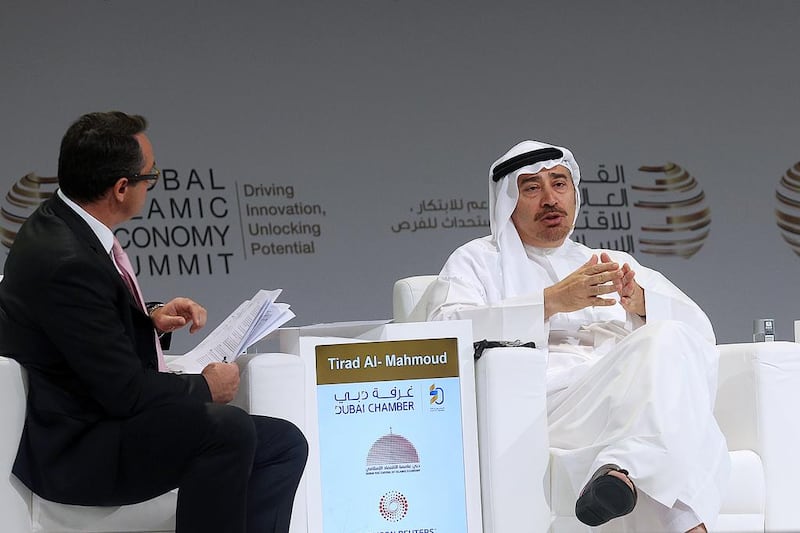Widespread ignorance about Sharia-compliant retail products is one of several irritants to major Islamic banks in the region, says a new survey. About 40 per cent of UAE banking customers are unfamiliar with Islamic banking products.
That is the main finding from the survey of customer attitudes to Sharia-compliant retail banking launched yesterday by Emirates Islamic bank.
About 47 per cent of those surveyed by the polling firm YouGov said that they had an account with an Islamic bank.
But those with conventional bank accounts were less keen on Islamic banks, believing that conventional banks had better mobile banking apps, easier procedures and were more trustworthy.
These figures highlight some of the obstacles facing UAE Islamic retail banks, which are looking to expand beyond their market share of 18 per cent of commercial banking assets.
Bank chief executives also called for regulatory changes to encourage the UAE’s Islamic banking sector to grow.
Islamic finance "needs affirmative action, because we're still a minority," Tirad Mahmoud, the chief executive of Abu Dhabi Islamic Bank, said in an interview with The National on Sunday.
“The system is designed for conventional banks. [Islamic banks] always come second.”
“We would like to see the regulators and the sovereigns give the Islamic banks the same level of system support as they have for the conventional sector,” Mr Mahmoud said.
Mazin Al Nahedh, group chief executive at Kuwait Finance House, said that international accounting standards needed to be adjusted to better cope with Sharia lenders’ actual risks. Since all Sharia bank transactions must be asset-based or asset-backed, the risks involved can look different to those associated with apparently similar conventional products, he said.
The UAE Central Bank, which is keen to bolster the Islamic finance industry, has introduced new liquidity tools for Sharia lenders, and is in discussions with the UAE Banks Federation to launch a unified Sharia board. "Regulation of the financial services is an evolving process," said Mubarak Al Mansouri, governor of the UAE Central Bank.
“As Islamic banks have their own unique models, the central bank is working on a number of ideas to strengthen Islamic financial sector,” he said yesterday.
But industry insiders have grown tired of raising the same issues year in, year out.
"Far too many summits have passed, far too many conferences have been held – we need to get on and do it," said Adnan Chilwan, the chief executive of Dubai Islamic Bank.
abouyamourn@thenational.ae
Follow The National's Business section on Twitter





